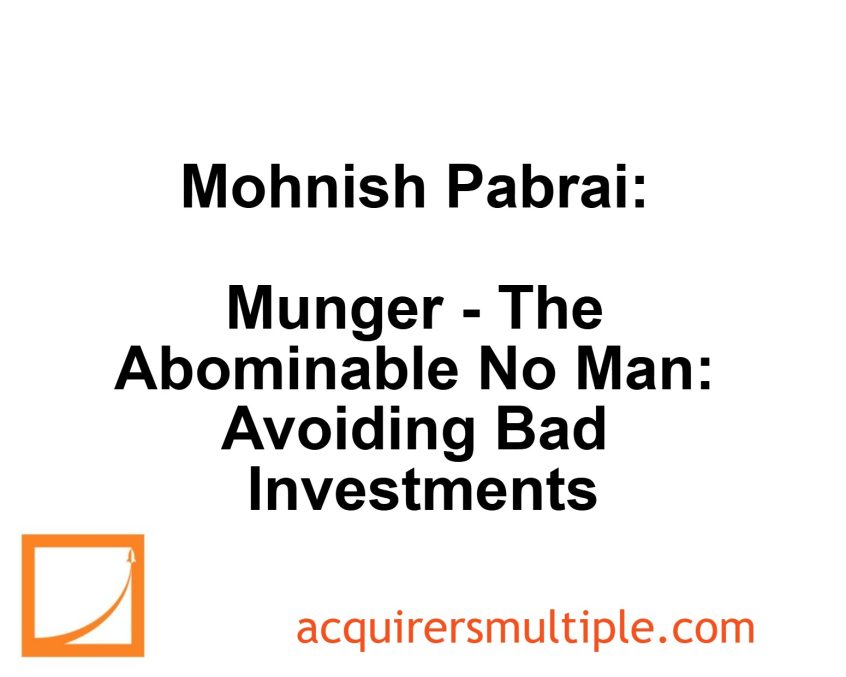In this interview with UNO’s Maverick Investment Club, Mohnish Pabrai highlights the importance of Charlie Munger’s role as Warren Buffett’s trusted critic at Berkshire Hathaway. Known as “The Abominable No Man,” Munger often rejected Buffett’s investment ideas, providing a vital filter against poor decisions.
Pabrai cites Berkshire’s problematic $20 billion acquisition of Gen Re as an example, noting that Buffett bypassed Munger, likely to avoid another veto. Munger’s ability to challenge and reject ideas has been crucial to Berkshire’s success, preventing many potential missteps.
Pabrai advises investors to adopt a similar mindset by critically assessing investments and asking, “What’s wrong with this? Why won’t it work?”
Here’s an excerpt from the interview:
Pabrai: Warren’s biggest complaint with Charlie Munger was that he was what Warren called “The Abominable No Man.” Warren knew that anytime he called Charlie, Charlie would tell him how stupid he was and how bad the idea was. Warren knew even before he called Charlie that almost anything he would bring to Charlie’s attention would be rejected.
For example, when they bought General Re (Gen Re), which was Berkshire’s largest acquisition at the time, the deal turned out to be a huge problem. Berkshire had to work very hard because the culture at Gen Re had eroded, and they hadn’t realized it.
Additionally, they paid a big price for it. Munger was asked about the Gen Re investment, a $20 billion acquisition for Berkshire at the time when the market cap was only around $60 or $70 billion, maybe even less. Munger said he didn’t know about the deal until it was almost done.
It’s interesting that such a large deal wasn’t brought to the board of Berkshire or to Buffett’s lifetime partner, Munger. Warren reviewed the deal and proceeded on his own. One reason he probably didn’t bring it to Charlie was that he got tired of hearing “no” and thought, “This one, I know insurance, I’m going to go do this.”
Charlie’s enormous value to Berkshire is clear. Imagine if we had a list of every investment Warren wanted to make but Charlie rejected. It would be fascinating to see because each idea went through one great mind and was then stopped by another. This dual scrutiny is likely a significant reason for Berkshire’s stellar record—it avoided many deals that Warren might have pursued without Charlie’s veto.
When evaluating investments, it’s a great filter to start by asking, “What is wrong with this? Why won’t this work? Why shouldn’t I make this investment?”
You can watch the entire interview here:
For all the latest news and podcasts, join our free newsletter here.
Don’t forget to check out our FREE Large Cap 1000 – Stock Screener, here at The Acquirer’s Multiple:



